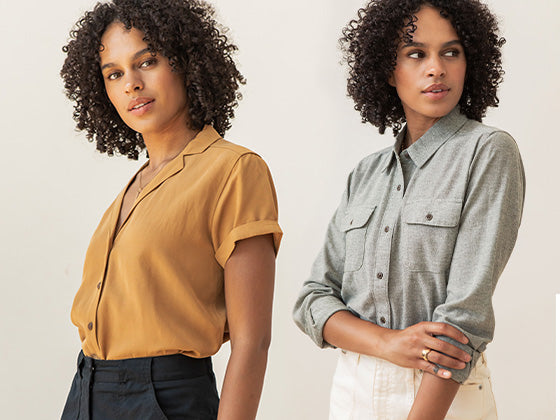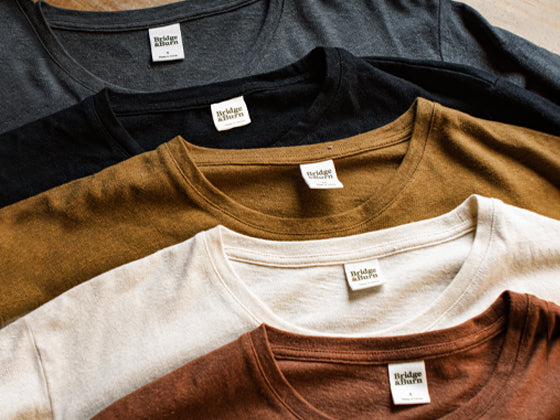Creating Bridge & Burn required a leap of faith. Founder, Erik Prowell quit his job as a software developer, lit the proverbial match, and threw it—burning the bridge of working for anyone else behind him. With no formal training he trusted his smarts and his strong work ethic, and took the plunge. In that spirit, Bridge Burners is a series showcasing people who are taking a similar leap.
There are a lot of things Van Havig and Ben Love never, ever want to do.
There are really only two things they do want to do:
1. make beer
2. kick it in the nuts, every day
The latter is more Van’s personal mantra, which probably could be translated to: never half-ass it and don’t compromise.
When they launched Gigantic Brewing in 2012 it had to be on their own terms. And those are some very specific terms: No, they won’t build a kitchen. No, they won’t accommodate your children in their tasting room. No, they won’t bring back that beer you liked last season. And no, they definitely won’t become a “f*cking gigantic brewery”.

That unapologetic attitude was the genesis of Gigantic. Van started brewing when he dropped out of graduate school. “I was working towards a PhD in economics when I lost faith in the discipline. I was instantly in love with the process.” Sixteen years later, working at a large brewery in Portland he was in need of a Plan B. “I was about to get fired for shooting my mouth off about where my employer was going with beer,” he says. “But as usual, crisis led to opportunity.”
One night over (what else?) beers, fellow industry veteran, Ben, proposed they collaborate on a fresh approach to brewing. But in a city with a glut of craft beer, what could they possibly do differently?
“We make only two beers year round—then everything else we do is limited special release,” Van explains. “It’s out in the market for a few months and we won’t make them again. I don’t want to say that Ben’s idea is totally unique, but it’s incredibly uncommon.”
They perfected their two mainstays—Gigantic IPA and Ginormous Imperial IPA—and everything else, you better snap up while you can. They joke about doing “the Eagle’s greatest hits” every five years, but they find that, in constantly making new beers they stay nimble enough to follow, and set, beer trends.


Gigantic’s other standout is their collection of illustrated labels. Their iconic Super Friends-inspired logo lends itself perfectly to a comic-book style labels, and from day one they’ve invited artists to create original works to complement each original beer. After two years and 23 beers, there’s still a backlog of artists itching for the opportunity to create a label.
But above all, they wanted to stay small and hands-on. “We’re both working brewers. You get to be a certain size, and you’re not in the brewery anymore,” explains Ben. “We don’t have any more room to add another tank, so we’re stuck—in a good way.”
It means they can focus on making exceptional beer, rather than a lot of beer. And because they don’t repeat recipes, every single beer needs to be outstanding. Their brand and sales depend on the reputation of the brewery as a whole, instead of just resting on the laurels of one or two stand-out beers. “We are failing if, at some point while you’re drinking any of our beers, you don’t stop and think, at least once, “F*ck, this is really good.” Their goal, ultimately is to be “bigger than beer.”

So far it’s working. But that’s not to say taking the leap was all easy-breezy, hops and water. “This comes with the constant, overbearing stress of finances and the weight of other people's belief in us,” says Van. “Breweries are very capital intensive enterprises, and we had to raise a significant amount of money primarily from friends in order to start Gigantic. When people who have been your friend for decades make a financial investment in you, it carries with it a tremendous burden. We are doing well, but it doesn’t matter to me. I’m the kind of person who’s always waiting for the other shoe to drop.”
On the flipside, the rewards are worth it. According to Van, those rewards come from interaction with peers in the brewing industry: “To me there is no better feeling than when someone you respect and admire shows through his or her actions that they feel that way about you too. I'm fortunate enough in my career that at this point, many people see me as a mentor, a colleague, an advisor or an authority. And occasionally you make a beer that's pretty good.”
For Ben, it’s the total independence: “I think the best part is that it’s just us. Not having a boss—that’s the best part.”
“We don't censor ourselves,” says Van. “We don't brew to any kind of ridiculous style concepts, and we just try to kick it in the nuts every day.”








